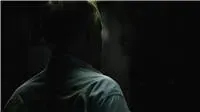Review: Collapse
Written by

Review by Simon Zhou
IMAGINE A VARSITY LECTURER. Remove a few screws, add dishevelment, indignation, and possibly paranoia – and you have Michael Ruppert, the subject of Chris Smith’s new documentary, Collapse.
For eighty-two riveting minutes, Ruppert is given centre stage to prophesy about where our civilisation is headed and the result could be taken as a companion piece to Cormac McCarthy’s The Road. Back in 2006, he predicted the economic meltdown with frightening specificity, and charting the growth of human population with that of oil and slapping on generous helpings of social Darwinism - all the whilst smoking cigarette after cigarette - his staggering conclusion is that in the next twenty to fifty years, modern industrial civilisation as we know it will inevitably, horrifically, collapse.
The documentary is a sparse affair, little more than starkly lit Ruppert sitting in a bunker, talking. And talk he does, at a mile a minute, like a derailed locomotive careening out of control. He is Noam Chomsky on crack, Sam Spade as a doomsday intellectual, tying together the strands of history and avarice, economics and geography to make his frenzied case. He does it all with such purpose and ease, such conviction and lucidity that his argument is arresting, and at times listening to him speak, it feels like he knows everything about everything.
As he continues to talk, the film places the viewer in much the same position as a suspense thriller, building up a momentum of dread that is difficult to placate. Our sense of foreboding is confirmed time and again, taking us to the brink of despair as we hope desperately for a solution. And as his arguments mount, we are confronted with the choice as to whether to believe him. Part of the temptation to dismiss his arguments as paranoia come from an impulse that we desperately hope he is wrong. His claims have such far-fetching consequences, and are so absolute in their scope, painting a picture of insurmountable inevitability that it often feels like our only recourse.
The film-makers throw us this possibility, giving us small details about his life that paint a sad portrait of a man who has lost everything in pursuit of his revolution (‘a revolution of the mind’, he calls it). There is a sincerity and commitment to his belief that is distressing to watch. Yet the difficulty of dismissing Ruppert as a crackpot is that he makes so much sense. ‘I don’t deal in conspiracy theory’, he tells us at one point, ‘I deal in conspiracy fact’. Indeed, most of his observations are based on widely accepted scientific facts, and its central tenet – that we live in a world with a limited energy resource (OIL) but our society is run by an infinite energy and infinite growth paradigm – is difficult to refute. His extrapolation – that our present processes of production will result in the collapse of modern industrial civilisation as we know it, returning us to a pre-industrial social Darwinist mode of survival - is truly terrifying.
After the film, I found myself far more willing to take personal responsibility for issues of sustainability. Whether you agree with what Michael Ruppert has to say or not, the issues are impossible to ignore.